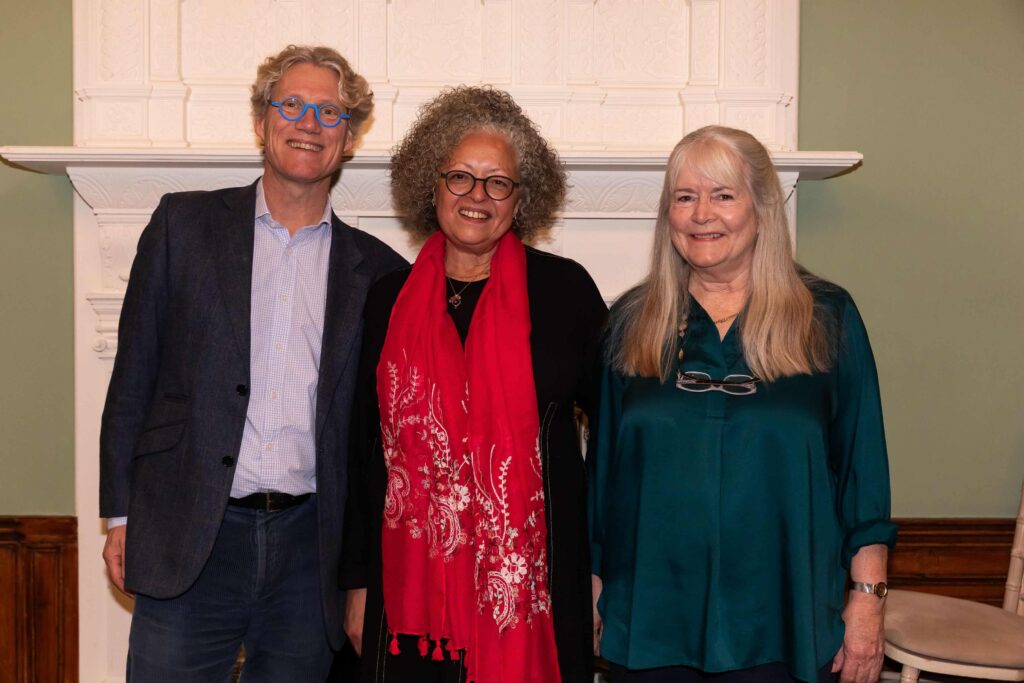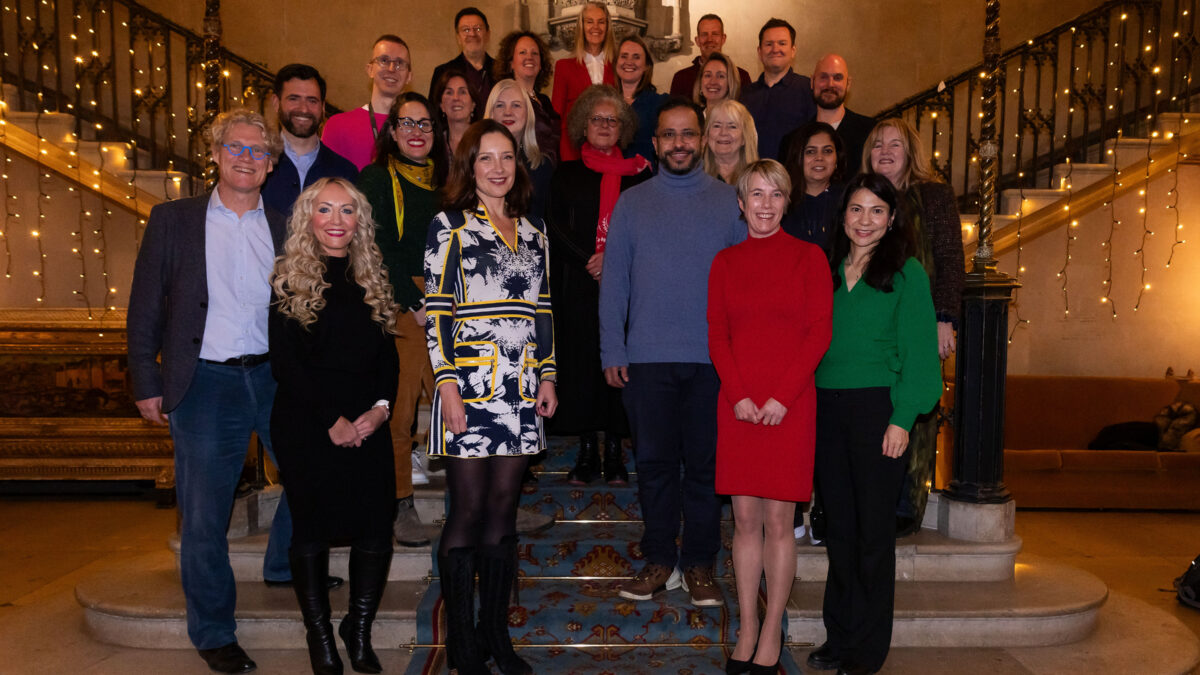As 2024 draws to a close, this week also saw the final workshop of Ashridge’s Postgraduate Certificate in Executive Coaching program. This is a standalone program, which also forms the first block of our Master’s in Coaching. The final workshop is all about professionalism in the coaching relationship. We’ve explored a wide range of approaches and interventions in executive coaching in the previous four workshops, experiencing relational coaching and learning about leadership and change in organizations. We’ve arrived at a point where we can begin to ask ourselves some difficult questions in the coaching profession.
We try to cover all the boundary issues around conduct & ethics, diversity, evaluations, qualifications, marketing propositions, and endings in coaching. This is Erik’s favorite workshop because, he says, we do this in a real way, feeling the boundaries, debating the choices that are open to us, and opening up great vulnerability and sensitivity around social differences. This leaves no participant untouched. At the same time, every participant is an expert by now, after many years of practice and eight months of rigorous training.
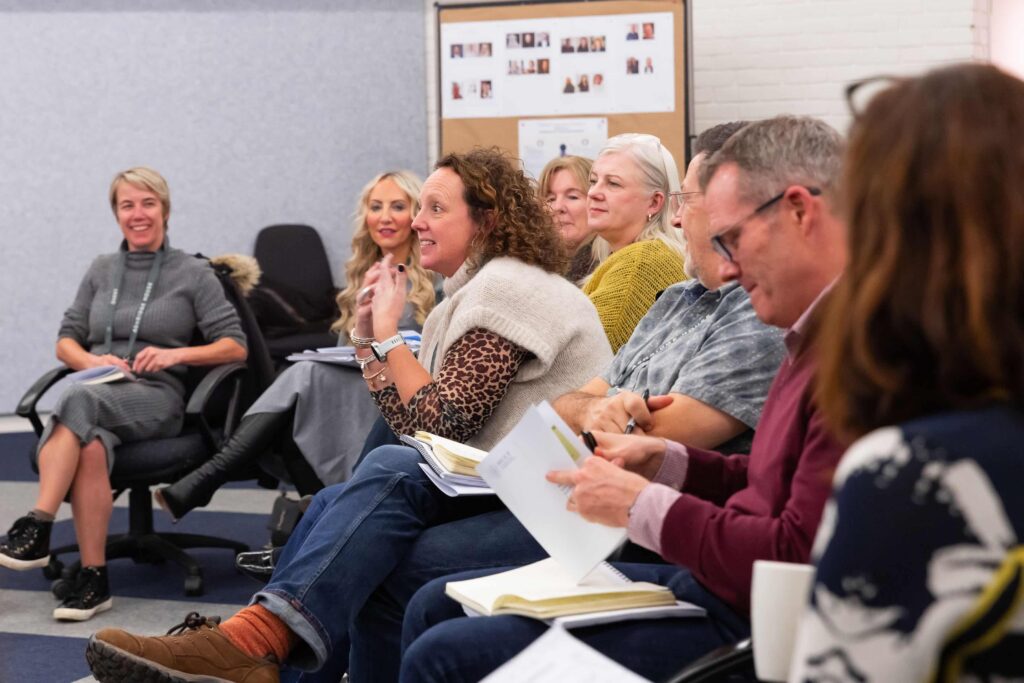

Conversations run deep and invite us all to reconsider our privileged positions and how we hold the responsibilities that come with coaching.
This two-day workshop is playful and serious in equal measure, as those in the group who are on the master’s start to look ahead to the next modules, to ongoing supervision, and reunions.
With time for a celebratory dinner on campus, this was an opportune moment to take stock and invite some of our participants to share their reflections on their journey so far.
We’re joined by program participants Vykinta Kligyte, Partner at Korn Ferry, Phil Lewis, a consultant and advisor, and John Shaw, whose imminent retirement from the NHS will enable him to grow his practice.
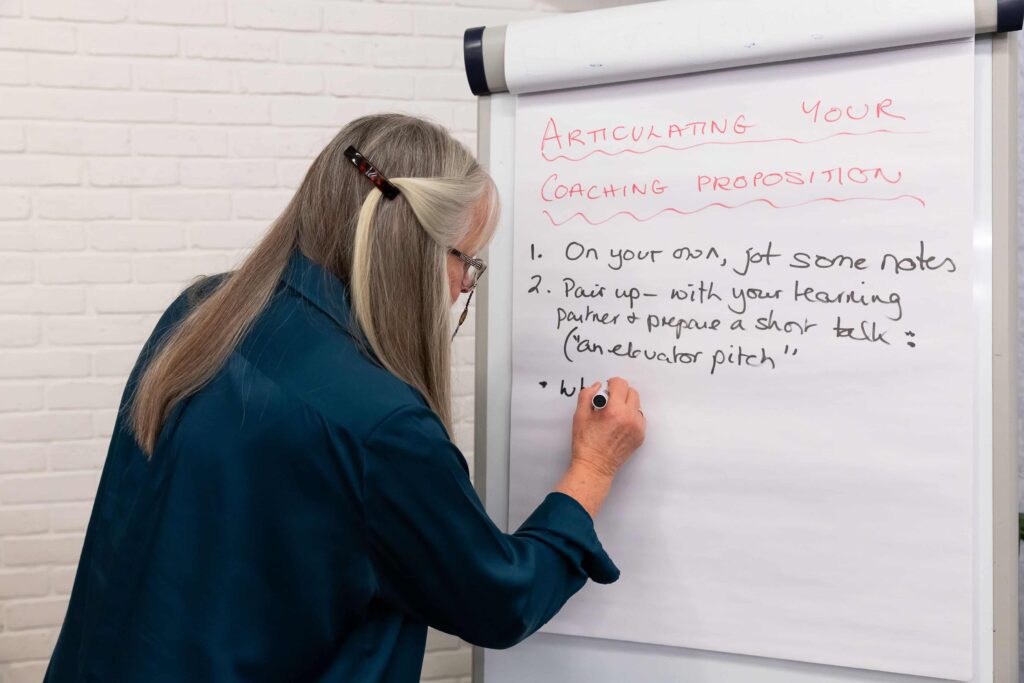

Q: What’s been your greatest learning on the program so far?
Phil: For me, I’ve learned that for all of the incredibly useful frameworks and theory and everything else, actually being able to show up as I am as a coach is the best act of service I can give to my clients and also to my colleagues on the course as well. Tammy said it beautifully, actually, in a session she led when she said: “What if we all coached from a position of knowing that we were enough?” And that has been transformational for me in my work.
Vykinta: I’ve been coaching as a consultant for over 20 years now and I wanted to join Ashridge so I could refresh my learning with new practices, models, and the latest research and theories. I work in a corporate environment, which is very solutions-led. As a consultant coach, I think people typically come to you for expertise. And I think for me, my greatest learning has been almost reframing my own thinking and reframing my coaching to recognize that I don’t need to have the answers. I just have to ensure that I have extremely targeted questions that will enable leaders to find the insight in themselves. And this takes the pressure off in a way.
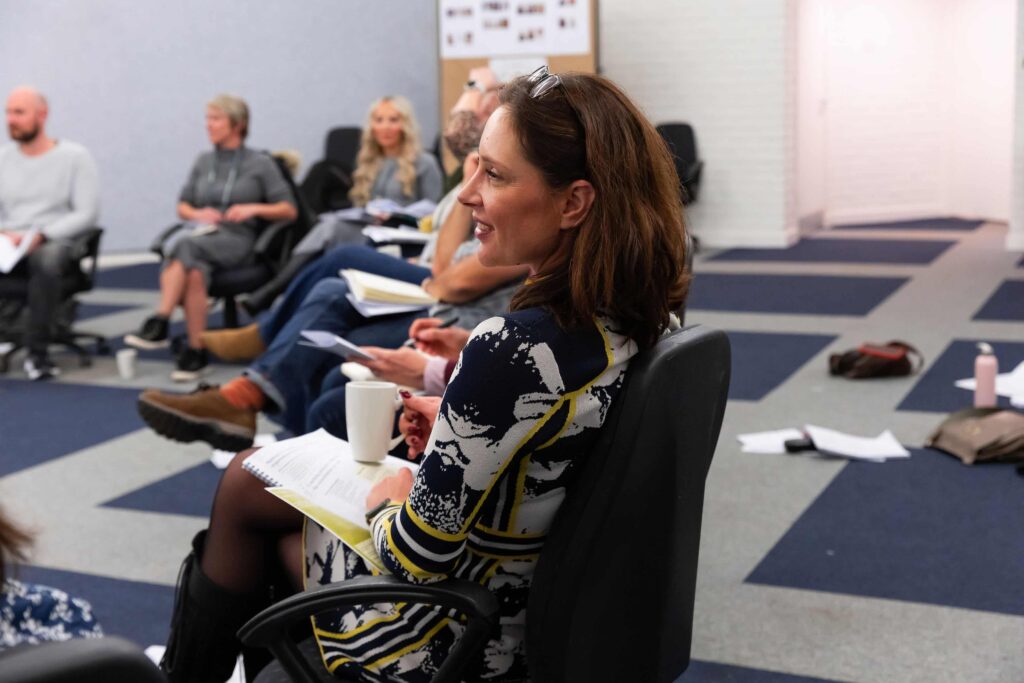

What’s been your highlight?
Phil: All of it! Every single one of the workshops has been terrific. I’ve also found real value in the one-to-one tuition. Both of those sessions has been highly impactful—not just for my essay writing, but also on how I show up as a coach.
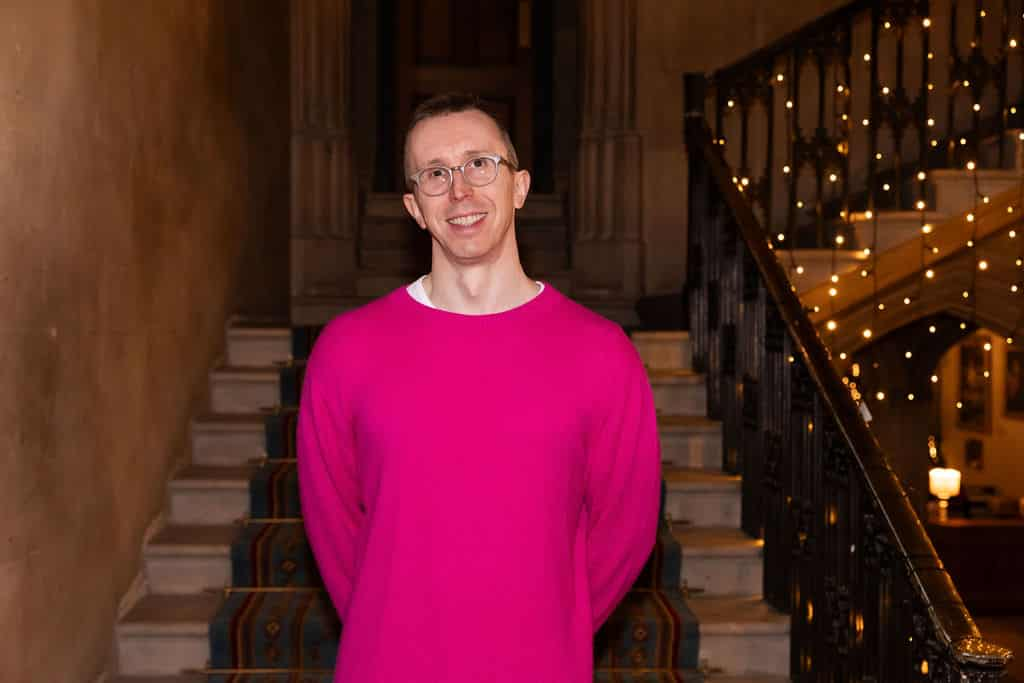

John: I think my highlight has been the realization that I know more than I thought I did. Feeling supported and taught in a way that allows you to go and investigate these things yourself.
Vykinta: I didn’t realise coming into this program how important the group work and group dynamic was going to be. My cohort group is so diverse, from so many different countries, backgrounds, education levels, and careers. I didn’t expect how much intimacy we would build together as a group. How closeness can be so important for uncovering some of those insights and reflections about yourself. I expected this course to be much more theoretical and I didn’t expect so much personal work. So, I think, realizing how instrumental the group is in helping me to do that personal work. I think this is probably the biggest highlight for me and probably the strength of the program.
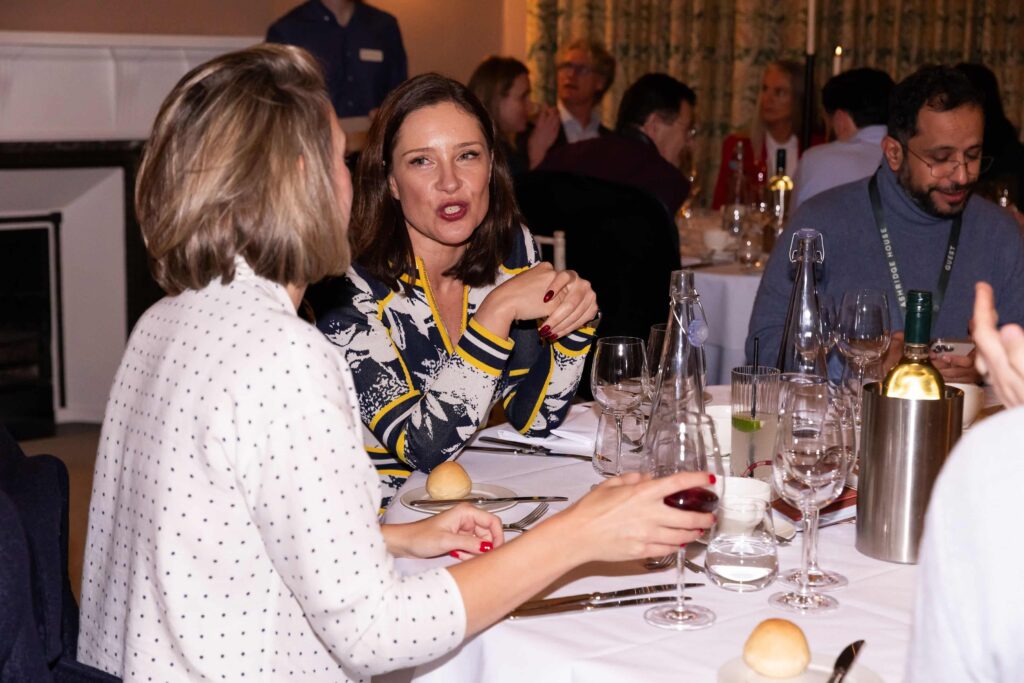

What’s been your biggest challenge?
Phil: I’m self-employed and I run two businesses and doing both of those alongside this has been a lot. So I would say it’s been the biggest challenge, even though I expected it.
Vykinta: Being a consultant, working with C-Suite, I think it’s very easy to have impostor syndrome. Working with individuals who are so accomplished—Fortune 500 CEOs and the like. I’m from a research background and I haven’t, for example, personally managed global P&L. This program has given me the confidence and credibility to realize that my path here is to spark that insight within the CEOs. I’m here to put them on the right path and get them to pause and reflect. It’s not me walking that path with them, it’s me witnessing that path and giving them the right tools and the right insights to be successful.
What advice would you give now to yourself a year ago?
John: Don’t doubt! Go for it. I did go for it, but I was full of doubt. Remember all the things that you’ve learned in your life because they all come together and become things you can take into your practice.
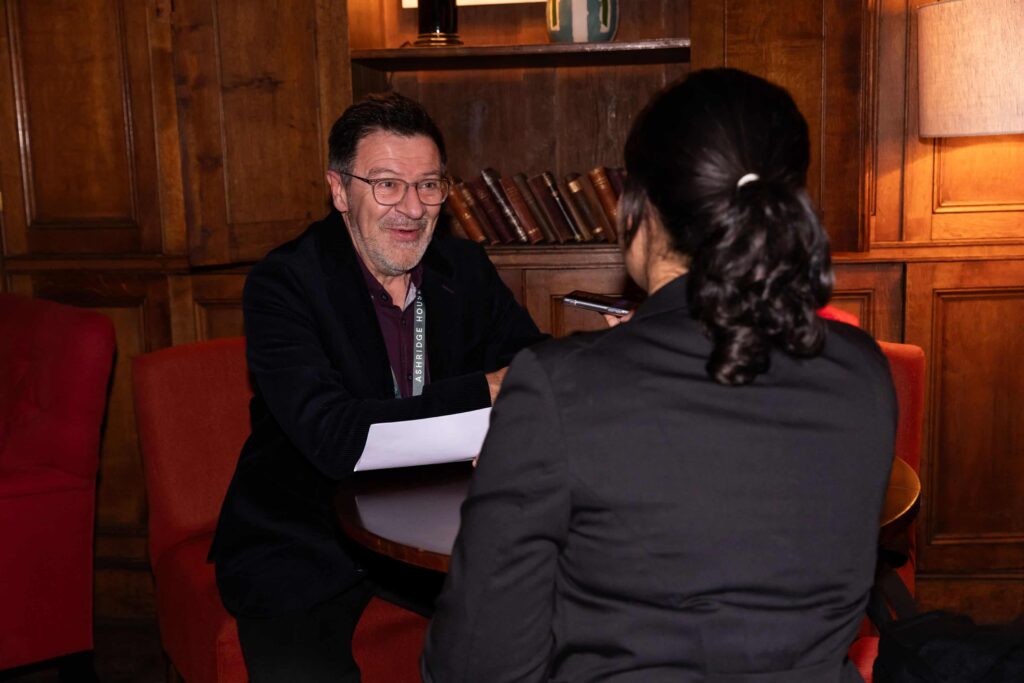

Phil: My advice to myself a year ago is to chill out! It was very hard to walk in here for that first workshop. For me, just coming into the group and letting things naturally unfold. It’s found its own rhythm across the sessions and across the course of the year. If I’d known then what I know now, I’d have relaxed a lot more coming in and not given myself quite such a hard time.
Vykinta: I would tell myself to be much bolder and more courageous. I think, again, it’s sometimes that we don’t have that confidence. And I think being a challenger is really important for a coaching role. So, don’t be afraid to take some risks. We know more than we believe we do. Take more risks!
Take more risks!
Vykinta, Partner at Korn Ferry
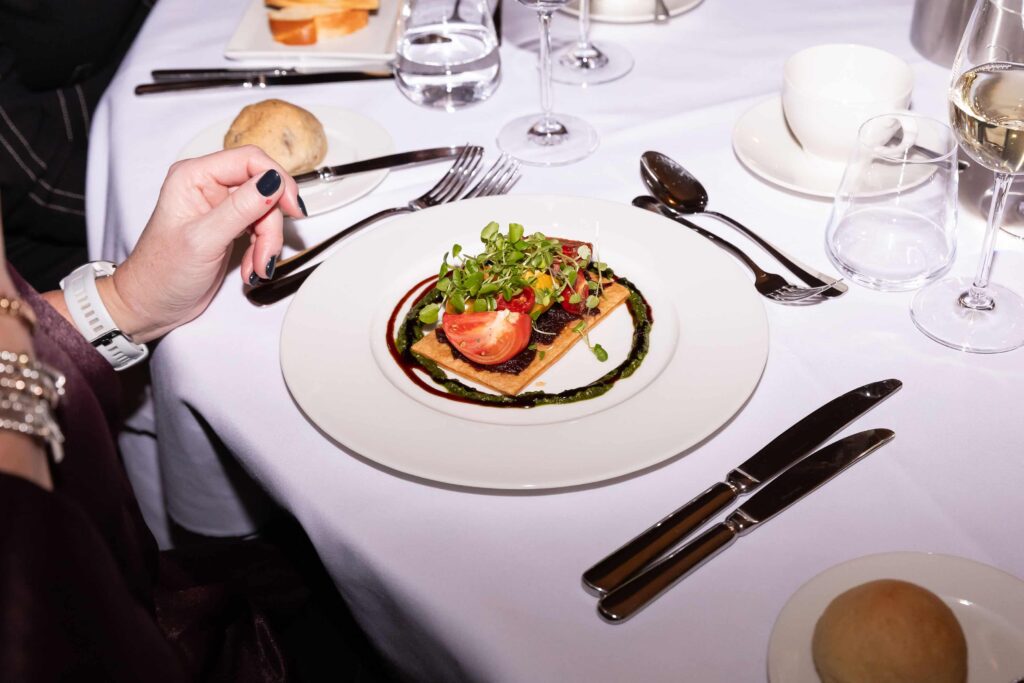
What are you most looking forward to next year?
Phil: Firstly, continuing to put into my practice what I’m learning here. There’s a direct correlation between the work we do here and the work I do with clients. And I think that’s really good. And the second thing is just continuing on this path. I’m doing my accreditation next year and I’ll probably do the master’s in 2026. I look forward to all of it, really. And I think it’s just going to be an ongoing journey of discovery and learning.
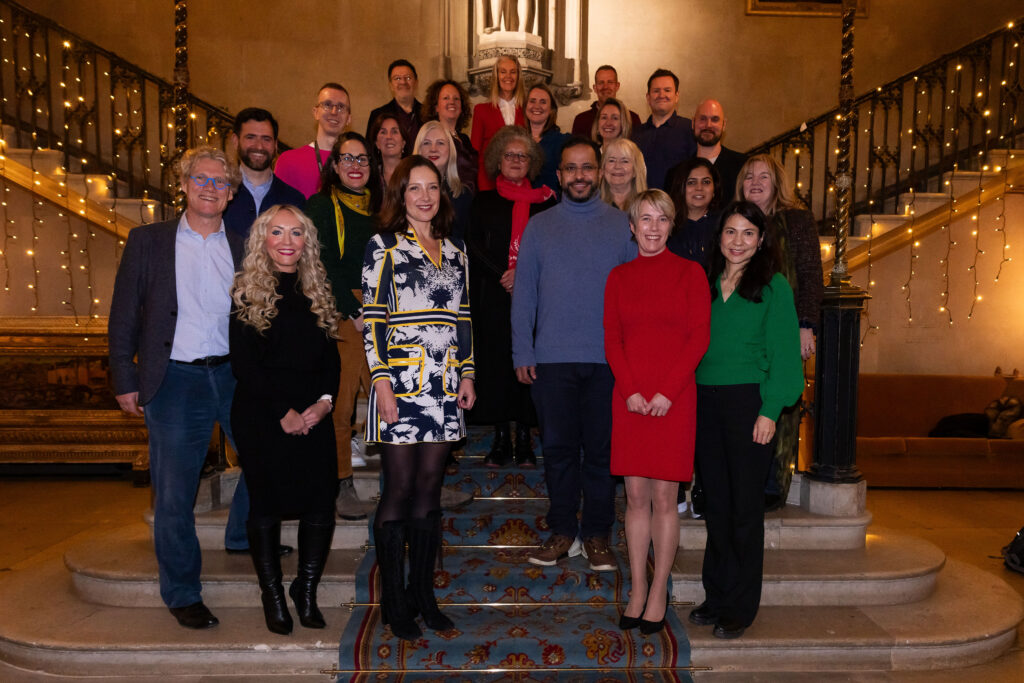

John: I’m ending 35 years of working in the NHS this Friday and going freelance, so I’m really looking forward to having the time to develop my practice. I think, again from this workshop today, I’m going to take my time and really make sure that I do all the next bits of the course and the accreditation when I’m ready to do that. So I think that’s a really exciting thing to look forward to for next year, following from this. It’s been a really positive experience.
Don’t doubt! Go for it.
John, Organizational Executive Coach
Vykinta: I’m looking forward to continuing onto the next stage of the master’s program and learning more next year. It’s such a privilege and such a gift to ourselves as professionals to take this year and, you know, be coached and learn. I think diversity is actually really important because people take different perspectives. We’ve built a very strong, close-knit group. I’m looking forward to continuing learning and leveraging the insights of the supervisors. It’s always good to have that reflection. Perspective taking has been hugely useful for me.
And in my practice, I’m looking forward to continuing to challenge myself. To not be afraid of challenging clients and to feel confident to apply different strategies. Because there are so many different schools of thought, there are so many different models that can be applied. And I think in every session, I can now set a goal to try a new tool or to try a new technique and not be afraid to take those risks and test new things, because I think that’s the only way to grow.
